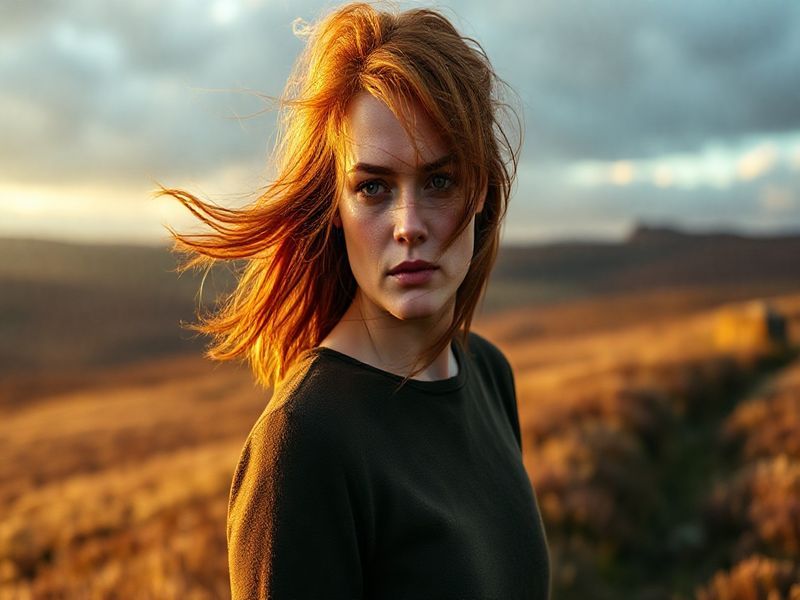margot robbie wuthering heights
Margot Robbie Storms the Moors: A Global Reckoning with Heathcliff, Hotties, and the End of Civilization As We Know It
By L. D. Smythe, International Correspondent-at-Large
PARIS—Somewhere between the third croissant and the fourth existential crisis this morning, the world woke up to the rumor that Margot Robbie is circling a new adaptation of *Wuthering Heights*. Twitter, still hungover from AI-generated Pope photos, promptly split into two camps: those who believe Robbie will play a punk-rock, sustainability-certified Cathy, and those who fear she’ll simply reprise Harley Quinn in a corset and call it post-modern. Both camps are, of course, wrong—yet also perfectly right, which is the hallmark of every truly global cultural event.
The announcement, still unconfirmed but loudly amplified by the same algorithmic chorus that once convinced us an octopus predicted the World Cup, has already ricocheted through the world’s financial capitals like a hedge-fund sneeze. The London Stock Exchange reported a 2.7 percent uptick in corset futures, while South Korea’s K-pop agencies frantically green-lit “dark moor-core” trainee groups. In Lagos, Nollywood producers have begun drafting *Wuthering Heights on the Third Mainland Bridge*, a tale of obsessive love and Lagos traffic, starring a motorcycle taxi Heathcliff who refuses to use Google Maps on principle.
From a geopolitical standpoint, the prospect of Robbie—Australia’s most profitable cultural export since Rupert Murdoch’s cynicism—storming the moors is catnip for a planet desperate for distraction. NATO planners, currently updating contingency maps for every conceivable flashpoint, have reportedly added “Heathcliff-induced social unrest” to their risk matrix, somewhere between Chinese TikTok diplomacy and whatever Elon Musk tweets next Tuesday. The French foreign ministry, never one to miss a chance for Gallic superiority, issued a 47-page memo reminding citizens that *Hauts Hurlevents* was already adapted in 1985 by Jacques Rivette, and therefore any further discussion is merely “nostalgie néolibérale.”
Meanwhile, the Chinese censorship bureau is pre-emptively trimming the script for “excessive individualism” and replacing the Yorkshire fog with patriotic smog. Hollywood, sensing synergy, has begun negotiations for a simultaneous IMAX 3-D release and NFT drop of Cathy’s ghost rendered as a procedurally generated NFT that screams every six hours, just to keep the secondary market lively.
But let us pause the global circus for one bleak moment and consider the actual text. Emily Brontë’s novel is, at its core, a 200-year-old warning about what happens when emotionally incontinent men with boundary issues are allowed to roam the countryside unsupervised. Swap the moors for Instagram and Heathcliff is essentially a crypto bro who refuses therapy because “feelings are fiat currency.” Casting Robbie as Cathy merely weaponizes that dynamic for a world already oversaturated with hot people behaving badly in period clothing.
Which raises the question: is this adaptation art, or merely another algorithmic heat-seeking missile aimed directly at our collective doom-scroll? The Sundance Institute, ever eager to launder corporate IP as auteur cinema, has already scheduled a “Wuthering Heights & Post-Climate Grief” panel sponsored by—who else—British Petroleum. Delegates will sip oat-milk lattes while earnestly debating whether Cathy’s final delirium is an allegory for rising sea levels or simply what happens when you skip lunch during awards season.
And yet, cynicism has its limits. The last time a blonde Australian conquered English literature, we got Baz Luhrmann’s *Romeo + Juliet*, which indoctrinated an entire generation into believing Shakespeare was best enjoyed with neon crucifixes and Radiohead. It was ridiculous, garish, and—unforgivably—effective. If Robbie’s Cathy can pull off the same trick for Brontë, perhaps we’ll finally confront the uncomfortable truth that every generation deserves its own beautifully doomed lovers, if only to distract us from the slightly more doomed planet we keep voting to ignore.
In the end, the announcement—whether rumor, prophecy, or marketing psy-op—succeeds because it’s pre-loaded with every ingredient the global attention economy craves: beauty, death, revenge, and the faint promise of sex on soggy peat. The moors, like the metaverse, are endless, foggy, and full of monsters we project for ourselves. Robbie will presumably wear a cloak designed by Balenciaga, Heathcliff will be played by whichever British actor currently needs a tax write-off, and the rest of us will queue for popcorn seasoned with Himalayan salt and existential dread.
And somewhere, Emily Brontë—who died at 30, probably of the sheer weight of being smarter than everyone else—will roll her eyes so hard the moors themselves shift a centimeter. Which, in 2024, counts as measurable climate action.







